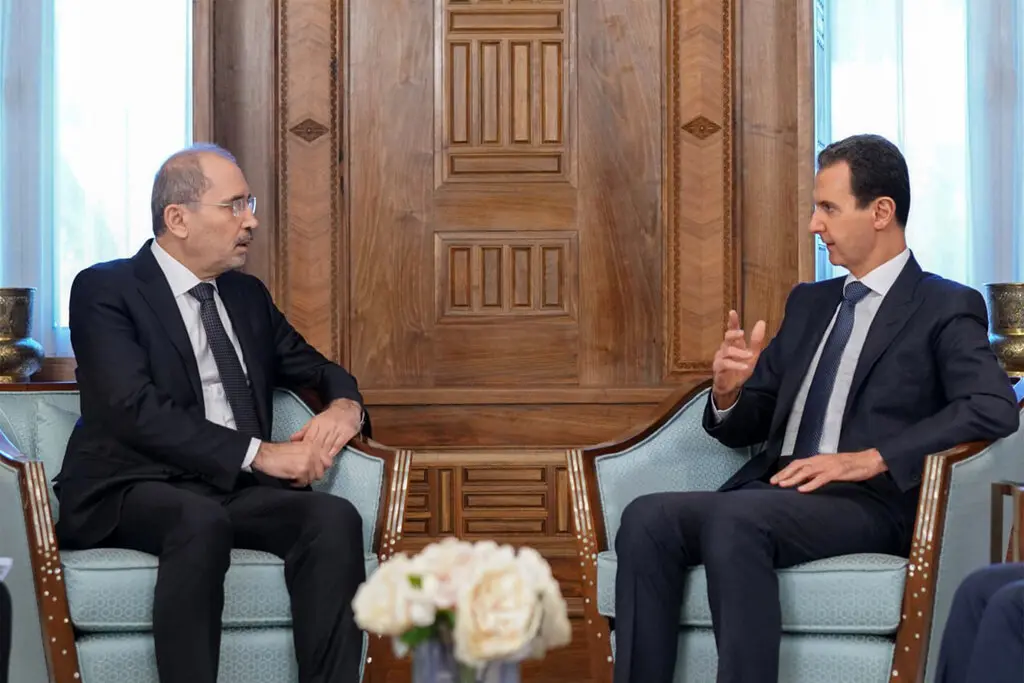The 7.8-magnitude earthquake that devastated Turkey and Syria exactly a month ago, killing some 50,000 people and levelling thousands of residential and commercial buildings, appears to have worked to Syrian President Bashar al-Assad’s advantage.
Syria, one of Israel’s prime enemies, was relegated to the political wilderness following the outbreak of its civil war in 2011. This fratricidal conflict has killed several hundred thousand Syrians, uprooted half of Syria’s population, and forced millions of its citizens to flee into neighboring countries such as Lebanon, Jordan and Iraq.
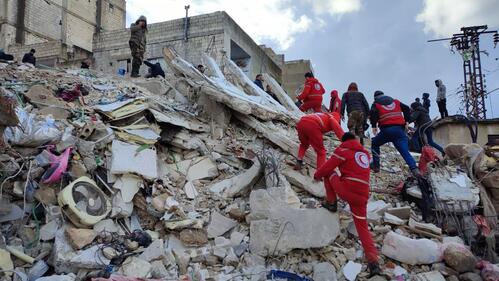
Assad’s violent suppression of dissent, which precipitated the ongoing civil war, had major consequences. Syria was suspended from the Arab League and shunned by a plethora of Arab countries that severed diplomatic relations with Damascus. In short order, Syria — a key Arab state known as the “beating heart” of Arab nationalism — was reduced to pariah status.
Since the earthquake, however, Syria has improved its regional position.
The quake, which claimed the lives of some 6,000 Syrians, struck Aleppo, where Syrian forces defeated rebels in 2016, and Latakia, Assad’s ancestral home. Aftershocks rattled Idlib, which is held by an assortment of Syrian rebels, Kurds and Islamic fundamentalists.
Within days of the disaster, United Nations officials arrived in Syria eager to help. Syria’s chief allies, Russia, Iran and China, dispatched all manner of assistance. Saudi Arabia, an adversary, sent an airplane loaded with first aid.
Assad took phone calls from Egyptian President Abdel Fattah el-Sisi and King Hamad of Bahrain. He also held discussions with Ayman Safadi and Abdullah bin Zayed, the foreign ministers of Jordan and the United Arab Emirates. And in a goodwill gesture, Assad temporarily expanded United Nations access to rebel-controlled areas in the northwest.
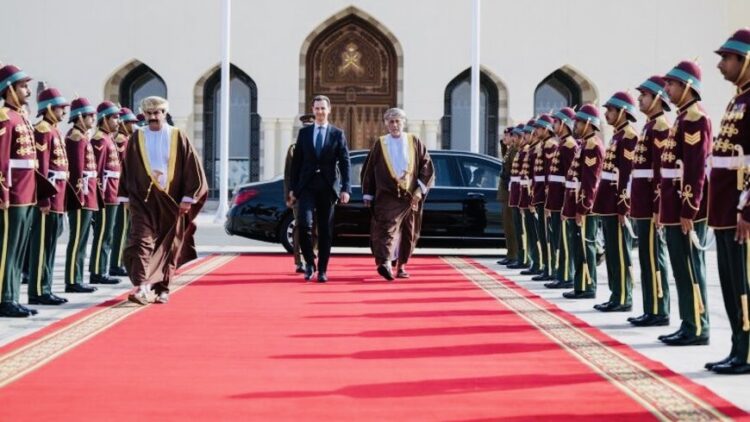
On February 20, Assad visited Oman, in one of his few trips abroad in the past decade. According to Syrian and Omani reports, he and Oman’s sultan, Haitham Ben Tareq, spoke of the need for “joint cooperation” and “efforts to consolidate security and stability in the region.” The Syrian news agency, Sana, reported that Oman “hopes to see (Syria) return to normal relations with all other Arab countries.”
In his first external trip since the eruption of the civil war, Assad visited the United Arab Emirates last March. The United Arab Emirates, an ally of the United States, reestablished relations with Syria in 2018. It has since spearheaded a campaign to reintegrate Syria into the Arab political fold.
The United States, which opposes any form of normalization with Syria, criticized the United Arab Emirates for its openness to Assad, a polarizing figure who seeks to fix his war-torn economy by improving relations with oil-rich Arab countries.
Assad’s quest for regional acceptance took a quantum leap forward last December when the Syrian defence minister met his Turkish counterpart in Moscow. The meeting was arranged by Syria’s most important ally, Russia.
Turkey, which currently occupies a swath of northern Syrian territory, broke ties with Syria in 2011 after Assad rejected proposals from Recep Tayyip Erdogan, then the Turkish prime minister and now the president, to end the civil war.
From that point onward, Turkey, which had been one of Syria’s closest allies, supported the rebel cause and provided hospitality to Syrians fleeing Syria. There are now about three million Syrian refugees in Turkey.
Erdogan, in recent months, has talked of ending his quarrel with Assad, but has yet to confer with him. Be that as it may, Syria has made advances on other fronts to alleviate its isolation in the Arab world.
In September 2021, the energy ministers of Syria, Jordan, Lebanon and Egypt signed an agreement that Lebanon would import Jordanian electricity and Egyptian gas via Syria.
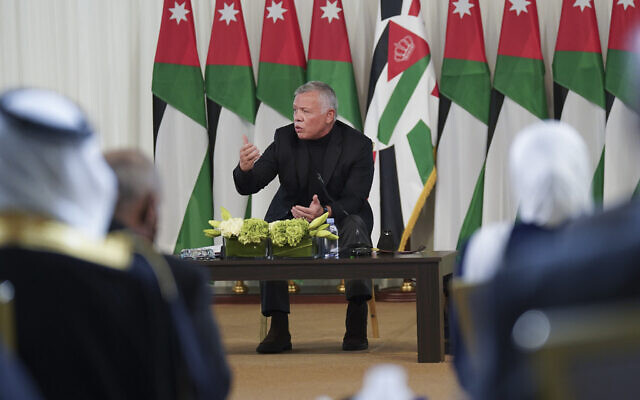
A month later, King Abdullah II of Jordan, the first Arab leader to call for Assad’s resignation after the outbreak of the civil war, phoned Assad. It was their first conversation in a decade.
Despite these milestones, Syria has yet to emerge from the cold.
Iraq, Lebanon, Oman and Algeria have called for Syria’s readmission into the Arab League, but Saudi Arabia has registered its objection.
Saudi Arabia, which broke with Syria in 2011 and has since funnelled arms and funds to the Syrian rebels, takes a dim view of Syria’s close relations with Iran, its regional rival. It goes without saying that Syria and Saudi Arabia still have a long way to go before they can normalize relations.
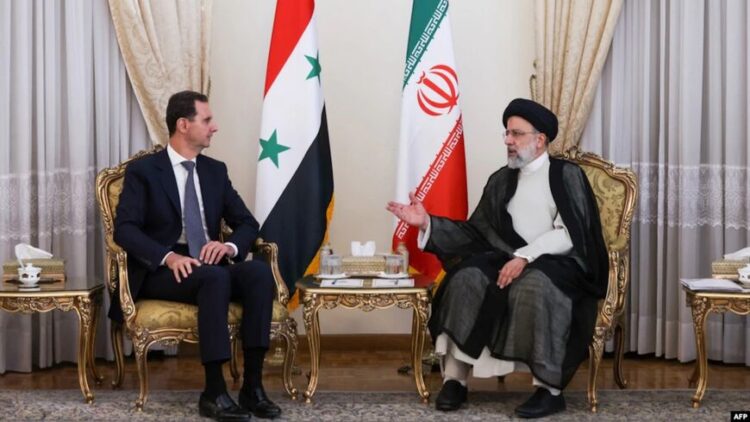
Syria’s full rehabilitation is also blocked by the United States and the European Union, which have imposed economic sanctions on Syria and regard Assad’s authoritarian regime with extreme distaste.
A few days after the quake, though, the U.S. and the EU temporarily eased the sanctions. They were put in place in reaction to Syria’s egregious human rights violations, one of which was the deployment of chemical weapons against civilians.
Ukraine, which is currently fighting a war with Russia, severed ties with Syria last June after Assad recognized the Russian-backed breakaway republics of Donetsk and Luhansk in eastern Ukraine. In response, Syria broke relations with Ukraine in July.
Syria, a Russian client state, has supported Russia’s invasion of Ukraine without reservations.
